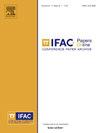基于强化学习的氢柴油双燃料发动机安全控制
Q3 Engineering
引用次数: 0
摘要
面向可持续未来的紧迫能源转型需求跨越多个行业,是人类面临的重大挑战。氢气预示着一个清洁、无碳的未来,并有可能与现有的运输技术相结合。然而,将氢气添加到现有技术(如柴油发动机)中需要额外的建模工作。强化学习(RL)支持交互式数据驱动学习,消除了对控制器综合数学建模的需要。然而,这些算法可能不是实时的,需要大量的数据才能在实践中工作。本文提出了一种新的方法,使用离线模型学习和RL来演示4.5 L氢柴油双燃料(H2DF)发动机的安全控制。离线H2DF模型学习步骤有助于在模拟环境中进行策略搜索。控制器被证明是约束兼容的,并且可以利用一种新的状态增强方法进行样本高效学习。离线策略随后在真实引擎上进行了实验验证,其中控制算法在树莓派控制器上执行,与在线模型预测控制优化相比,计算时间减少了6倍。本文章由计算机程序翻译,如有差异,请以英文原文为准。
Safe Reinforcement Learning-Based Control for Hydrogen Diesel Dual-Fuel Engines
The urgent energy transition requirements towards a sustainable future span multiple industries and are a significant challenge facing humanity. Hydrogen promises a clean, carbon-free future, with the potential to integrate into existing transportation technologies. However, adding hydrogen to existing technologies such as diesel engines requires additional modeling effort. Reinforcement Learning (RL) enables interactive data-driven learning that eliminates the need for mathematical modeling for controller synthesis. The algorithms, however, may not be real-time capable and need large amounts of data to work in practice. This paper presents a novel approach which uses offline model learning with RL to demonstrate safe control of a 4.5 L Hydrogen Diesel Dual-Fuel (H2DF) engine. An offline H2DF model learning step facilitates the policy search in a simulated environment. The controllers are demonstrated to be constraint-compliant and can leverage a novel state-augmentation approach for sample-efficient learning. The offline policy is subsequently experimentally validated on the real engine where the control algorithm is executed on a Raspberry Pi controller and requires 6 times less computation time compared to online model predictive control optimization.
求助全文
通过发布文献求助,成功后即可免费获取论文全文。
去求助
来源期刊

IFAC-PapersOnLine
Engineering-Control and Systems Engineering
CiteScore
1.70
自引率
0.00%
发文量
1122
期刊介绍:
All papers from IFAC meetings are published, in partnership with Elsevier, the IFAC Publisher, in theIFAC-PapersOnLine proceedings series hosted at the ScienceDirect web service. This series includes papers previously published in the IFAC website.The main features of the IFAC-PapersOnLine series are: -Online archive including papers from IFAC Symposia, Congresses, Conferences, and most Workshops. -All papers accepted at the meeting are published in PDF format - searchable and citable. -All papers published on the web site can be cited using the IFAC PapersOnLine ISSN and the individual paper DOI (Digital Object Identifier). The site is Open Access in nature - no charge is made to individuals for reading or downloading. Copyright of all papers belongs to IFAC and must be referenced if derivative journal papers are produced from the conference papers. All papers published in IFAC-PapersOnLine have undergone a peer review selection process according to the IFAC rules.
 求助内容:
求助内容: 应助结果提醒方式:
应助结果提醒方式:


